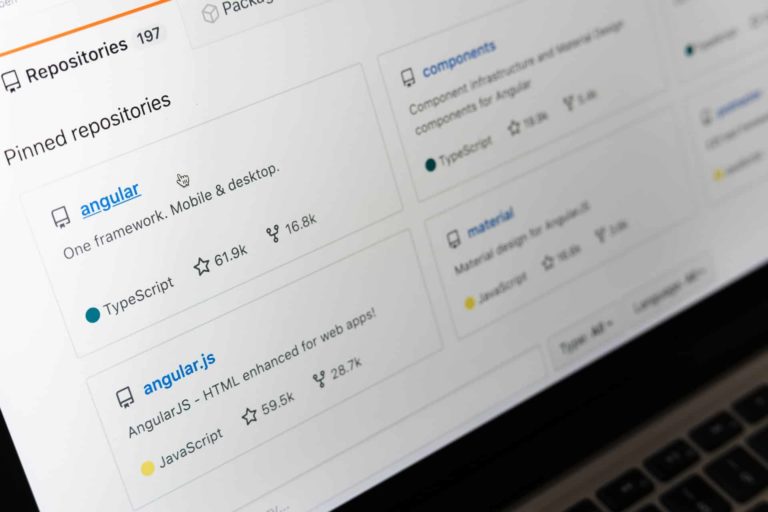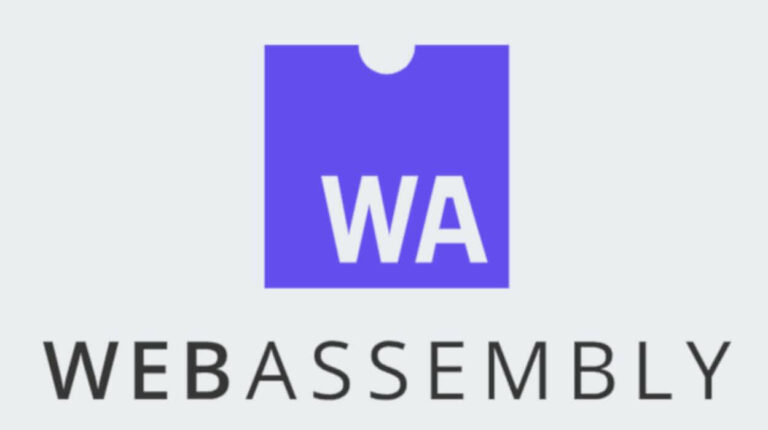10 Best GitHub Alternatives in 2025
Are you searching for the best alternatives to the famous version tool GitHub. This article provides you with a comprehensive list of the best alternatives to GitHub.

One of the most popular tools used by developers today is Git. Knowledge of GitHub is required in almost any Software Engineering role. For experienced devs, using Github is a pretty simple task. However, newbie programmers often find it hard to use a code versioning tool like GitHub. However, GitHub can help take your coding skills to the next level by improving your ability to collaborate and work with teams on different projects.
GitHub is a powerful collaborative web-based platform that uses Git – the open-source version control tool. Github is a code hosting platform that allows developers to work on different projects at the same time collectively.
This excellent version control tool has numerous benefits like precision bug-tracking, real-time collaboration, excellent documentation and allows users to host single-web pages for free using GitHub pages. However, even with Github’s robust features, many people still ask Google if there are valuable alternatives to GitHub.
This isn’t surprising because the platform’s user interface is highly confusing despite GitHub boasting so many robust and complex features. I’ve tried taking a stab at GitHub, and I still couldn’t figure out how to download and upload a source file.
If you’re looking for an alternative to Github, we’ve got you covered. In this article, we highlight the top 10 best alternatives to GitHub.
Top GitHub Alternatives
| Name | Highlights | Website |
|---|---|---|
| GitLab | Free, Secure, Very fast | gitlab.com/gitlab-org/gitlab |
| Bitbucket | Unlimited private repositories, excellent third-party integration | bitbucket.org |
| Gitolite | Excellent collaboration, easy to use | gitolite.com |
| SourceForge | Free, unlimited bandwidth, analytics | sourceforge.net |
| GitBucket | Flexible, great collaboration, repository viewer | github.com/gitbucket |
| AWS CodeCommit | Very secure, unlimited cloud storage | aws.amazon.com/codecommit |
| Google Cloud Source Repositories | Excellent third party integration, supports extensive collaboration | cloud.google.com/source-repositories |
| Phabricator | Excellent support, code review, project management | phacility.com/phabricator |
| Gitea | Very lightweight, can run on raspberry Pi | gitea.io |
| Launchpad | Code reviews, email listings, bug tracking | launchpad.net |
1. GitLab
GitLab is an open-source software combining the ability to develop, test, secure and operate software in a single application. It’s one of the best alternatives to GitHub guaranteeing its users up to 99.69% uptime. Gitlab’s high uptime percentage ensures that the cost and consequences companies face due to prolonged downtime are eliminated.
It’s loaded with so many distinguishing features you won’t find on GitHub because, hell, this software is free; who doesn’t like free. Although GitLab is a free and open-source platform, users are still guaranteed improved security, optimized speed, the ability to develop and customize code, and a lot more features.
Gitlab is an excellent choice for beginner developers because of its easy-to-use UI. This open-source version control tool integrates seamlessly with third-party applications allowing you to create issues from supported apps and preview the required changes in the GitLab app.
2. Bitbucket
Bitbucket is a code versioning tool developed by Atlassian. However, this software is more than a version control tool; Bitbucket is one of the best alternatives to GitHub allowing teams to plan, collaborate, develop, test and deploy their code all in one application. This tool was designed specifically for teams and large corporations.
Developers and companies who wish to create quality software without making any changes to the code can easily do this as Bitbucket supports Continuous Integration/Continuous Development (CICD), thereby minimizing the need to make code changes during development constantly.
Bitbucket boasts of some outstanding features like unlimited free private repositories, excellent integration with third-party apps like JIRA and Trello, reduces the bugs in code by offering CICD, and it helps you secure your workflow.
3. Gitolite
Gitolite is a more lightweight alternative to GitHub. It’s an open-source version tool that is very lightweight but still provides users with all the necessary features an average developer needs. To set up Gitolite, users aren’t provided with a client or an interface; all they need is a concise code snippet, and they’re all set.
Like GitHub, Gitolite’s core functionality is built on Git, although this software comes with some minor improvements like increased customization. Gitolite is excellent for seasoned devs or large companies looking to develop custom quality software in an open-source platform.
One thing that constantly frustrates newbie GitHub users is permissions and security issues. If you’ve been having permission issues with GitHub, Gitolite is here to help. With Gitolite, you won’t have to worry about permissions as the platform automatically creates a login space with permission that you can easily share with your team.
4. SourceForge
SourceForge is a powerful versioning tool that is considered an excellent alternative to GitHub. Developers have grown fond of this platform because it offers an extensive support community to ensure that open-source projects become as successful as possible. It is a tool built by developers for developers.
With SourceForge, developers can develop, collaborate and distribute code to more than 30 million users worldwide. Surprisingly, SourceForge allows users to transfer projects developed on the GitHub platform to their distribution platform to improve the performance of your projects at a much lesser cost – SourceForge is open source and completely free.
This platform is a steal for developers because, at no cost, developers are provided with unlimited bandwidth to develop open-source projects, download analytics for your projects, and you can also take screenshots and videos of your projects to share them online.
5. GitBucket
One of the most important needs of developers when creating software is flexibility. During any development process, hosting of source code is inevitable. GitHub hosts a library of your code repositories, but it occasionally fails to provide you with the flexibility needed for your projects.
GitBucket, on the other hand, offers extensive flexibility at a higher rate which reduces the challenges associated with development by allowing other developers to manage the source code of your projects.
Some might consider GitBucket a clone of GitHub. Still, GitBucket provides additional features like Instant pull requests, issue tracker, activity timeline, LDAP integration, mail notifications, and a repository viewer designed to look a lot like Windows Explorer, making it easy to navigate the interface.
6. AWS CodeCommit
Amazon’s version control software AWS CodeCommit is capable of hosting private code repositories of any of your projects. Many large corporations prefer using this versioning tool because it allows developers to collaborate securely while the existing code is safely stored and encrypted in transit.
Amazon being a cloud provider allows AWS CodeCommit to provide users with unlimited cloud storage. AWS CodeCommit integrates seamlessly with AWS CLI, AWS SDKs, and AWS management console. It allows you to transfer files by utilizing HTTPS or SSH securely. AWS CodeCommit is a more secure alternative to GitHub.
7. Google Cloud Source Repositories
This is a free version control tool developed by Google. It’s a very decent alternative to Microsoft’s GitHub providing users with free unlimited private GitHub repositories, a premium feature on GitHub. These free private repositories help developers and companies monitor their mailing lists and manage their project’s source code with a robust in-built code search mechanism.
This tool addresses some of the long-standing issues of GitHub, like integration and miscommunication arising during your development process. Such issues are sorted on this platform through its built-in repository tool that spots those issues in real-time and helps you resolve them immediately.
8. Phabricator
Phabricator is another powerful GitHub alternative offering developers a wide range of tools that facilitate and optimize the development process of a company. Phacility developed the tool, and it is a very scalable version control tool that supports cross-platform functionality.
This version tool comes with awesome capabilities like automatic updates, maintenance, and outstanding support provided by the team at Phacility. Phabricator is excellent for conducting code reviews, tracking bugs, project management and ultimately is free and open source.
Installing Phabricator locally on your hardware is quite difficult. However, the team at Phacility provides users a support system that the user can easily purchase to receive assistance whenever they need it. While maintenance has stopped, it is still a great tool.
9. Gitea
Gitea is a self-hosted code versioning tool tailored towards serving individuals and small businesses. The installation process is as simple as they come and allows businesses to meet their daily needs through this hassle-free and easy-to-use code versioning tool.
The software was written entirely in Go and is supported on all major operating systems like Windows, Linux, and macOS. Gitea is so lightweight and convenient that even a $5 raspberry pi can successfully run the software.
Companies that utilize docker are at an advantage because Gitea integrates completely with Docker and Vagrant, allowing you to build quality software in containers and a virtual environment securely.
10. Launchpad
Launchpad is a free code hosting alternative to GitHub and is constantly used by thousands of developers to create, test, collaborate, and manage their code. Launchpad was released in 2004 but struggled as it was not established under the free license, but this was later resolved.
It’s completely free and open-source, allowing developers to track and resolve bugs collectively with their development teams. Launchpad addresses GitHub’s long-standing communication issue as this platform allows you to write code reviews and email listings in several languages to any of your team members to help improve the quality of your code.
Conclusion
All the version control tools we’ve listed above are great alternatives to GitHub. However, each of these tools come with their unique feature; some are free and open-source, while some are open source but still offer a paid plan.
GitHub is an excellent tool but still comes with flaws. We hope this article has helped broaden your view to help you select the best alternative to GitHub to cater to your development needs.





